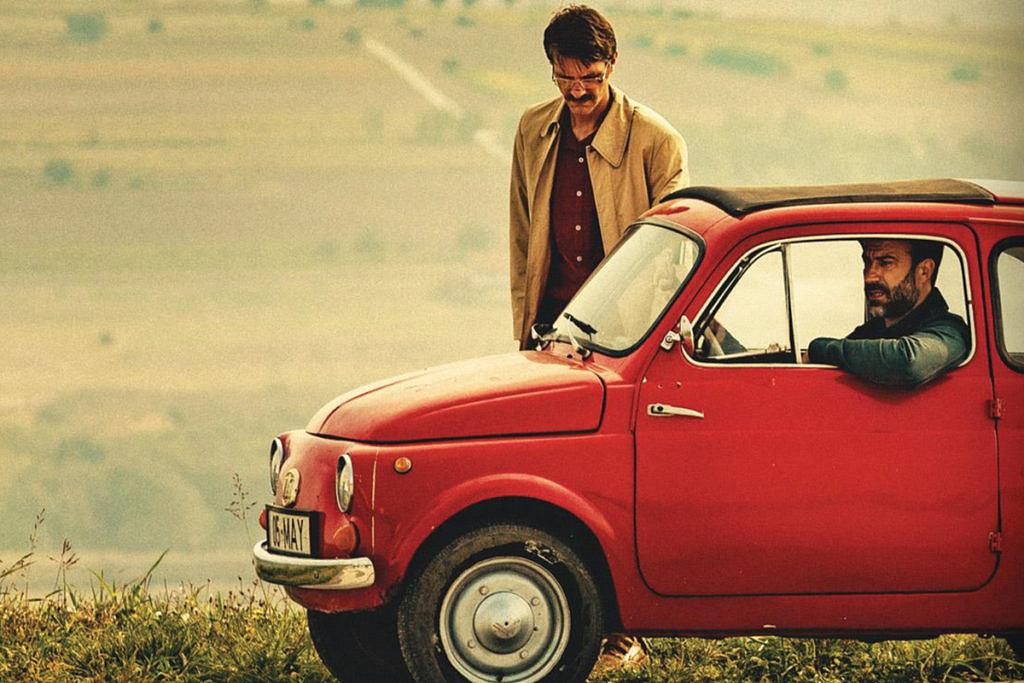Romanian film review: Transilvania International Film Festival & Charleston



Romania’s biggest film festival, Transilvania International Film Festival (in short, TIFF) ended on June 3rd and its current edition screened more Romanian films (features and short films, both fiction and documentary) than ever. The festivals busiest days are the ones dedicated to Romanian cinema and the now-famous Romanian Film Days (and nights) were long and bustling.
Which is no wonder if one has a look at the growing number of premieres during the past few years. It is not only the number of films released that are a good sign of a working film industry (admittedly one that often works in inscrutable, almost mysterious ways), but also the increasing variety of genres (making yours truly very happy). The other reason for the high number of Romanian pics is also the special section of Romanian classics from the 1960s and 1970s, mostly audience darlings, and some genuine finds, like disaster movie The Poseidon Explosion. You have to watch it to believe it, and especially how well it works (in case you don't track it otherwise, you can go for the many YouTube versions). The screenings, which were free, were organised with the occasion of this year’s celebration of 100 years since the Great Union.
The competition included many debuts, some in premiere, and some that have already been making the rounds, internationally and locally. The winner is the assured, hard-hitting Pororoca, and rightfully so. Carried by an impressive performance by Bogdan Dumitrache, the film is a gripping, horrifying story of a child gone missing and the toll this takes on the family. Its worthiest competitors were also awarded in other categories: Ivana Mladenovic’ Soldiers. Story from Ferentari was named Best Debut, while Daniel Sandu’s story about a young boy coming of age in a theological seminary One Step Behind the Seraphim snatched the Audience Award, and deservedly so. Finally, Adina Pintlilie’s already (in)famous Touch Me Not, a sincere, impressive look at intimacy and pre-conceptions was awarded a Special Mention. Surprisingly, Corneliu Porumboiu’s wonderfully droll and clever Infinite Football left with no laurels, but since it has been doing the festival circuit, I am sure it will gather some on its journey.
The short films selection has been more varied, with more animations, and thematically richer than in past years, so good news on that front as well. The winner, the charming The Christmas Gift is a hilarious, perfectly-written, acted and shot story of a boy’s letter to Santa Clause that includes one particular detail with hair-rising consequences.
For the premieres,TIFF is the first station and contact with an audience before they are released nationally in the following months. The first of them is already showing in theatres across the country. Andrei Crețulescu’s Charleston, a feature debut after a series of short films that have been TIFF regulars for the past years is quite a novelty: a genre-mixing, fresh-looking two-hander that starts with an eyebrow-raising gag (after the protagonist's wife dies suddenly in a car crash, the rugged, heavy smoking and drinking widower gets an unexpected visit from the lady's lover, a bespectacled, wide-eyed nerd in touch with his emotions) and develops into a darkly funny look at love, loss, and ultimately life.
If there is something striking about Charleston, is its look. And that, is has plenty. Told in bright, strong colors and contrasts, and showing a Bucharest that looks good for a change, the film dares to add color, which is a true revolution in the midst of the grey-loving images of the New Wave and many of its successors. Working with talented dop Barbu Bălășoiu, Crelescu has made a visually seductive film with a splash of retro nostalgia (the 1980s seem to be back). Speaking of seduction, the film also has a soundtrack to die for: Dengue Fever, Noir Désir, Get Well Soon. You can tell Charleston was a labor of love.
Speaking of love, the films literally transpires the love of cinema (not surprising since Crețulescu worked as a film critic for years before switching to directing), and the film’s other great joy is spotting all the various film quotes and influences (Kaurismäki and Jarmusch are high on the list, I would say, followed by quite a few road movies and film noirs).
Despite all these enjoyable bits though, the film’s content is not quite there. The dialogue sounds like “on paper” at times, and the screenplay could have used some serious trimming. I also had the feeling the nonchalance and coolness were added a bit heavily and it is the scenes that seem more relaxed that also work best, like the hilariously awkward lunch at Ioana’s parents.
But if you are in for a cool ride, don’t miss this one. The film is currently screening in cinemas, and its team is traveling along so you might even get lucky and meet them. Judging by the interviews I have read, there are plenty of interesting behind-the-scene stories.
By Ioana Moldovan, columnist, ioana.moldovan@romania-insider.com
Photo source: Chicago International Film festival website